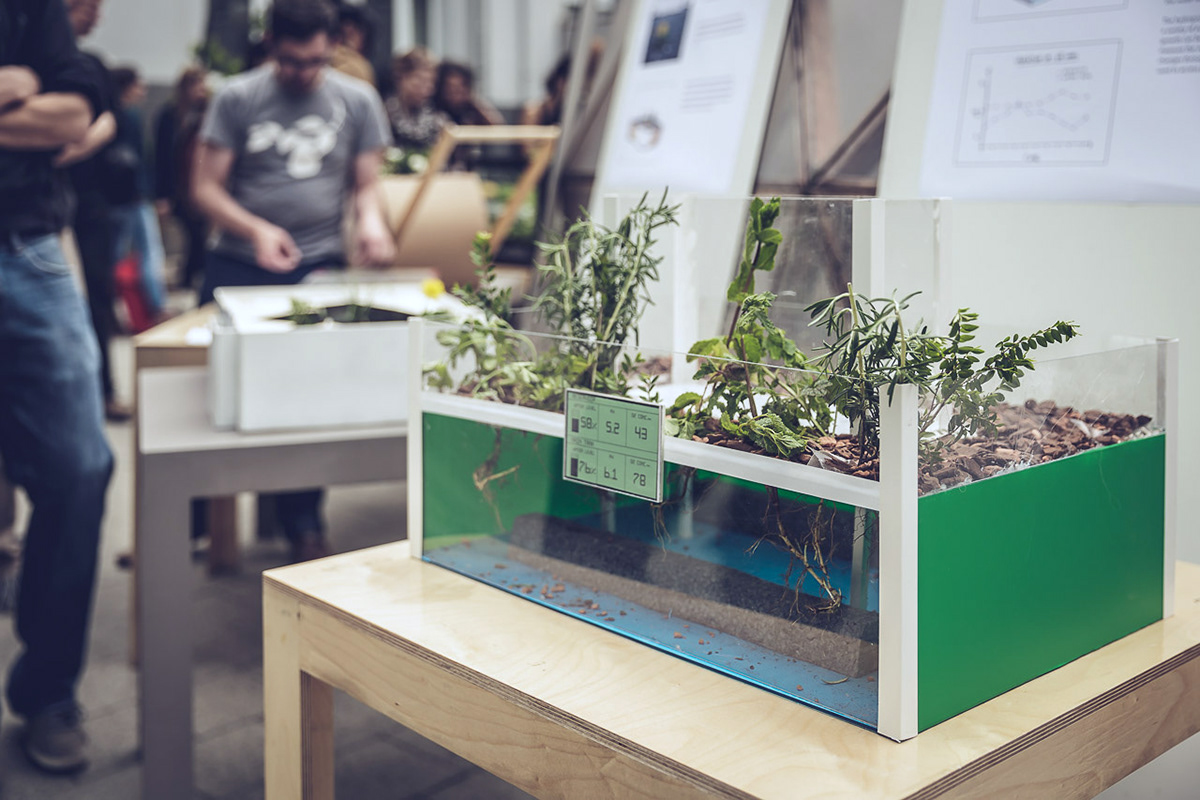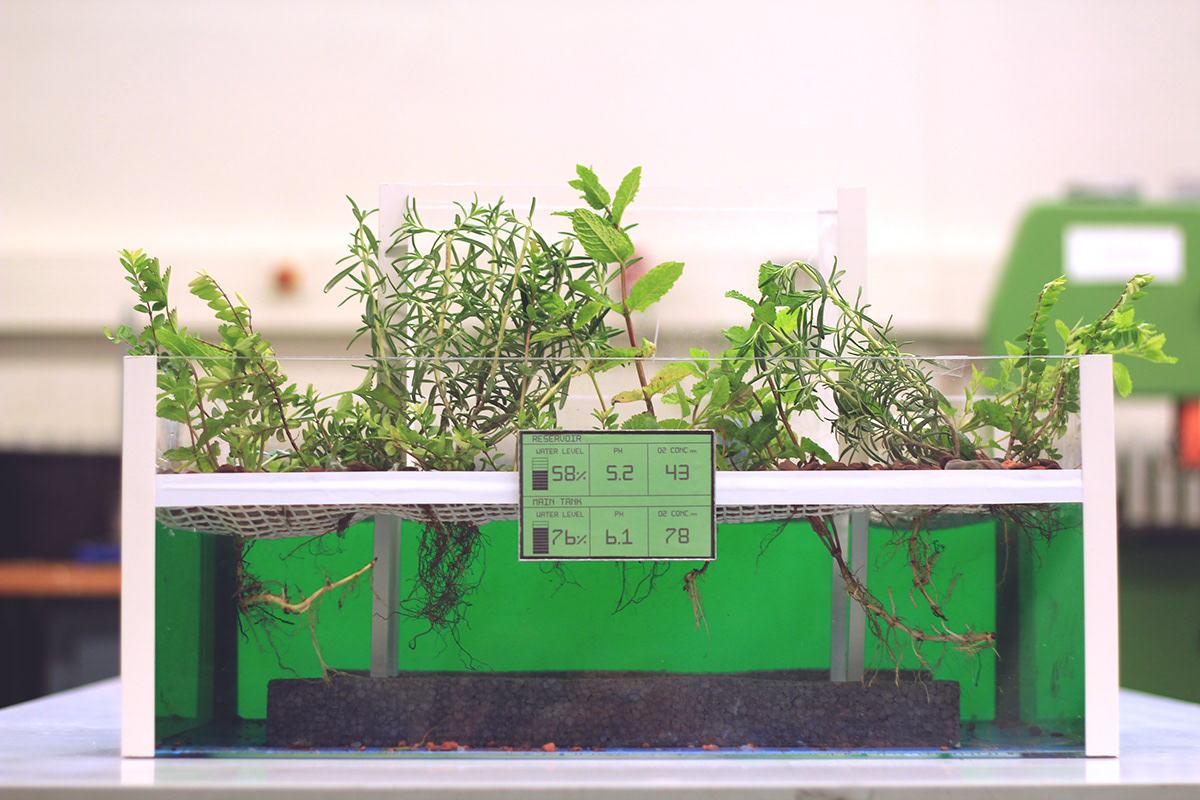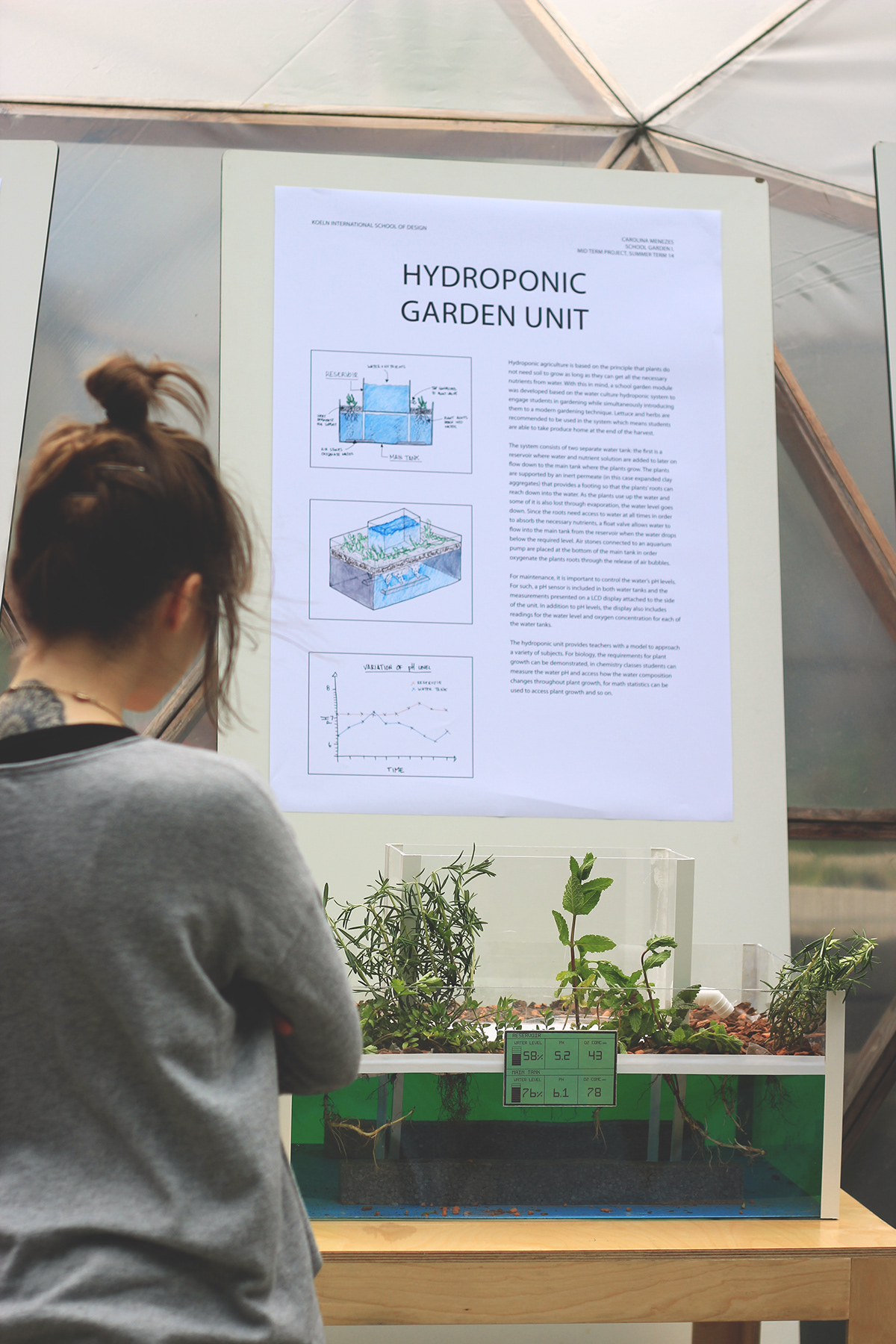Concept developed for the project Schulgarten I in partnership with the University of Cologne.
Hydroponic agriculture is based on the principle that plants do not need soil to grow as long as they can get all the necessary nutrients from water. With this in mind, a school garden module was developed based on the water culture hydroponic system to engage students in gardening while simultaneously introducing them to a modern gardening technique.
The system consists of two separate water tank: a reservoir where water and nutrient solution are added and stored and a main tank. The plants are supported by an inert permeate which provides a footing for the plants’ roots to reach down into the water. As the plants use up the water and some of it is also lost through evaporation, the water level goes down. Since the roots need access to water at all times, a float valve regulates the water level in the main tank, allowing water from the resevoir to the main tank. Air stones connected to an aquarium pump are placed at the bottom of the main tank in order to oxygenate the plants roots through the release of air bubbles.
For maintenance, it is important to control the water’s pH levels. For such, a pH sensor is included in both water tanks and the measurements presented on a LCD display attached to the side of the unit. In addition to pH levels, the display also includes readings for the water level and oxygen concentration for each of the water tanks.
The hydroponic unit provides teachers with a model to approach a variety of subjects. For biology, the requirements for plant growth can be demonstrated, in chemistry classes students can measure the water pH and access how the water composition changes throughout plant growth, for math statistics can be used to access plant growth and so on.




